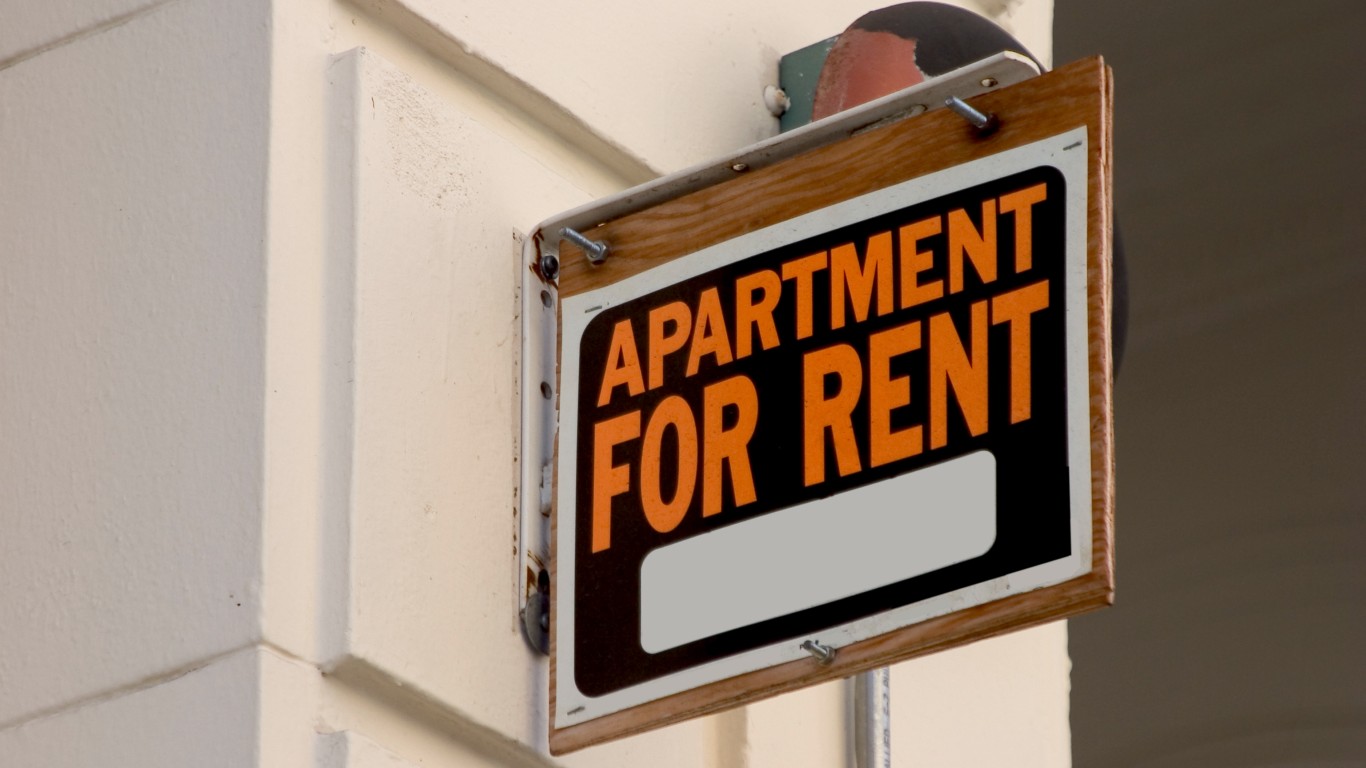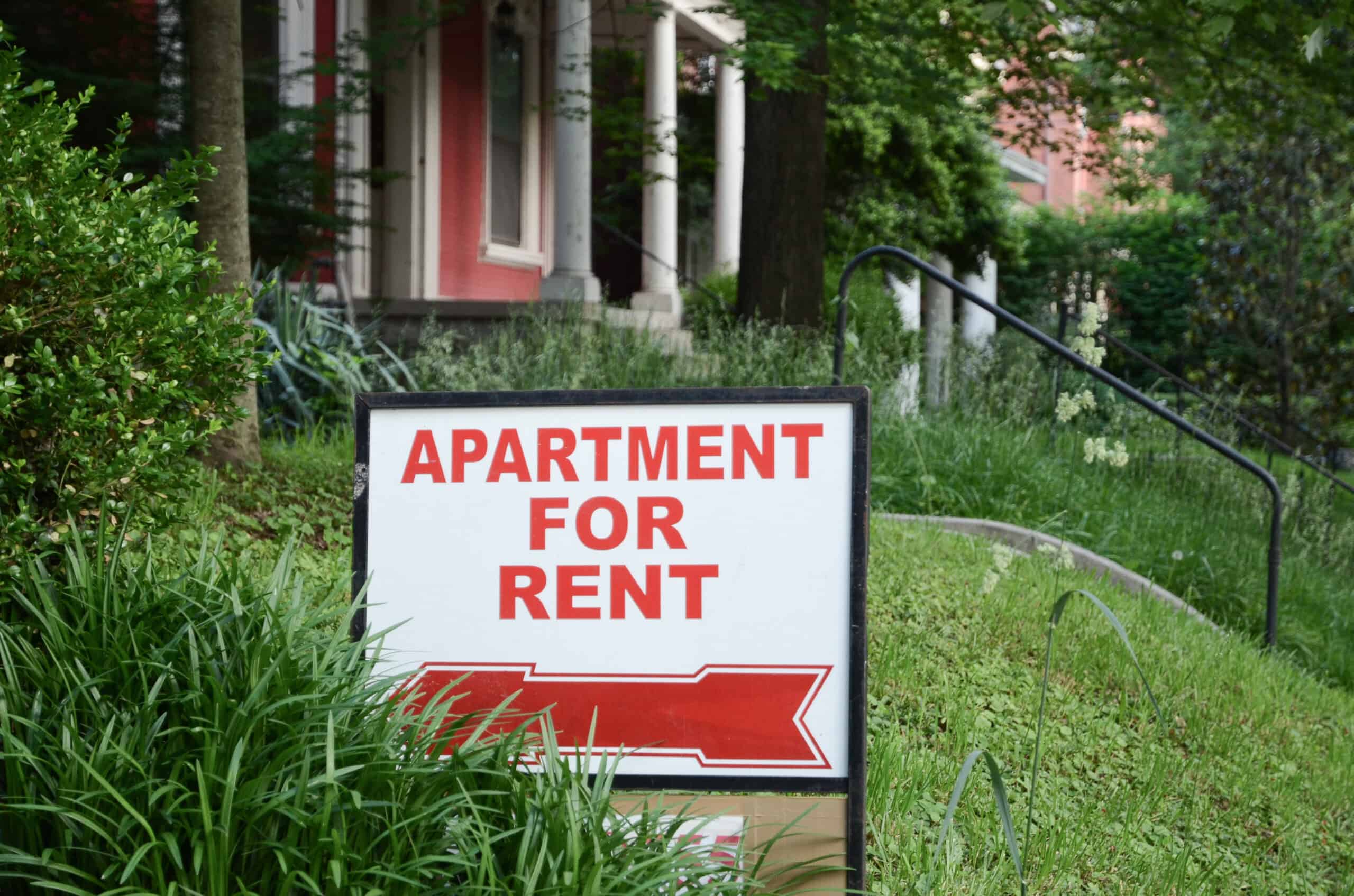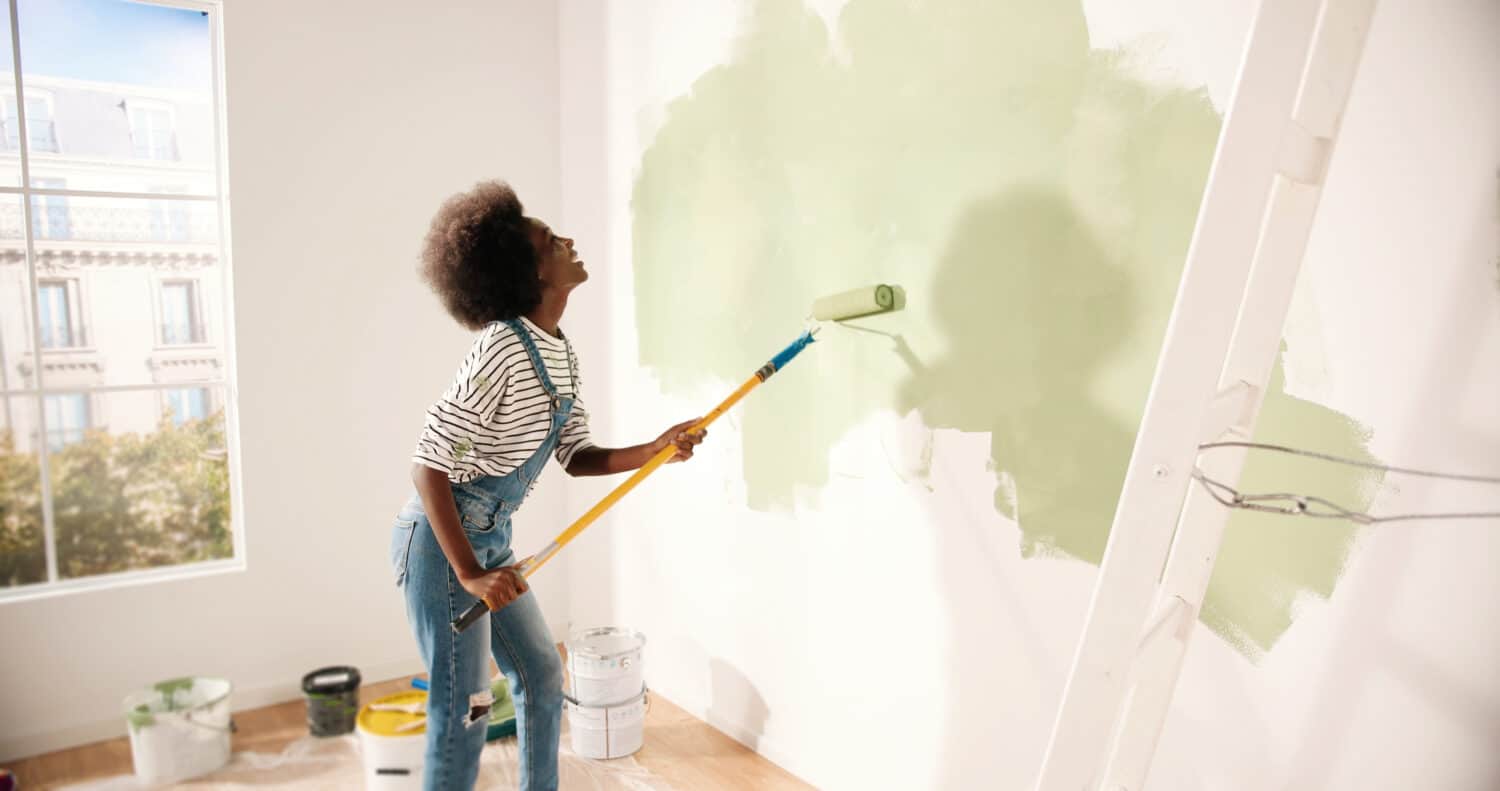
24/7 Wall St. Insights
- House hacking is the practice of renting out a spare room or a basement, or other part of your home in order to help pay the mortgage on the home or even make money.
- House hacking isn’t new, thousands of people have rented out parts of their homes in order to help make ends meet as living becomes unbearably expensive.
- If you need help finding other profitable investment ideas, download our free report on the two dividend legends we recommend every investor hold forever.
The American Dream of buying a home and living on a single income has been dead and buried for a long time. Recent legislation, inflation, and rampant greed by large corporations and private equity continue to dig the hole deeper and deeper.
Therefore, many Americans have begun resorting to alternative plans in order to live and shelter their families. Some decided to stay with their parents or live with other close family, emulating the living arrangements in other cultures. Others have resorted to not buying a home at all, and have found more abstract living arrangements. While others have begun practicing house hacking.
But what is house hacking, why is it gaining popularity, and how can you do it to save money, lower costs, and even make money?
Why Are We Talking About This?

Buying a home is one the largest and most expensive and impactful purchases a person will ever make. But as home prices, interest rates, and living expenses continue to increase at an unprecedented rate, buying a home can quickly become a financial trap of debt and bills from which you may not escape. We want to help people avoid this fate, and house hacking is one way to do that.
What Is House Hacking?

House hacking is the practice of living in only a portion of a house you own while renting out the rest. That’s it. Some readers might be surprised to hear this new term, as it’s something many people have been doing for years. It’s called having a roommate or struggling to make ends meet. But when white influencers discovered it, they gave it a new, trendy name and called it a hack so it could be more marketable and interesting online. But the truth remains the same: no matter what you call it, house hacking has been a practice long before it was called and is a common practice by those who can’t afford to live on their own.
Basic “house hacking” is done when one person owns a home and rents out either part of it, individual rooms, or a whole floor to another person to cover the mortgage payments, and living costs, or even make money. Tech publications and investment websites call it “savvy” and “clever”, but it began as a necessary reduction in living space to make ends meet and is quickly turning into an essential requirement for younger generations to afford to live in today’s housing market.
Why Is House Hacking Taking Off?

As private equity firms and corporations buy more homes, real estate agents take higher cuts of sales, zoning restricts new home constructions, and inflation continues to outpace wage growth, younger generations are facing a difficult choice: where can we live? Several might move in together while one of them puts up the money for a home and splits the mortgage payment.
On the other hand, as older families grow and the bills pile up while their salaries or wages remain stagnant, what once was enough to support a family is not enough anymore. So, as children move out, they might renovate a bedroom or two and house-hack their home in order to make enough money to survive.
The specific stories of each person who house hacks (or sub-lets, or rents out their basement, etc.) are wide and varied, but the general reason for all remains the same: the costs of living are too high and income is too low across the board, so people have to divide the most private part of their lives and share it with strangers in order to survive.
Should You House Hack?

Deciding whether you should house hack at all should be a careful process that includes many factors and answers several questions. Some of these questions include: do you have a housing cost that is too high to maintain alone? Are you wanting to begin a career in real estate management or as a landlord? Are you willing to put in the time to maintain the property as a responsible landlord and keep it safe, livable, clean, and hygienic? Do you have experience with rental properties?
If, after thoughtful consideration, you decide that house hacking is the right choice, you should remember that a house hacking arrangement is unique. It combines the responsibility of being a landlord with the close proximity and intimate living conditions of having roommates. If you don’t have the social skills to live with other human beings amicably, or the responsibility to maintain a professional landlord-renter arrangement, then house hacking will end up being a massive problem and source of considerable stress.
That being said, if you have an extra room or even an entire floor that is vacant, it is space you are paying for but not using. You might as well make that space work for you. Here’s how to get started. Also, if you’re looking to begin your career as a landlord, then house hacking is a good way to get started and “learn the ropes” since you don’t have to purchase another property and find renters. If your extra space stays empty for a few months, you’re not actually losing any money on a second mortgage.
How to Get Started with House Hacking

You can’t just jump into house hacking. Before you even begin remodeling your spare bedroom for a renter, you need to analyze if you’re prepared for the responsibilities of being an ethical and responsible landlord. Have you ever rented property before? If not, it would be useful to take a course speak to experts, or even pay someone to advise you for a couple of months so you do everything right before you begin. They can help you buy the right insurance for your house hacking, write up a fair rental contract, and even give you helpful advice to avoid any issues in the future.
This is a professional relationship you’re about to engage in, not hanging out with your buddies. You can’t expect renters to bow to your every desire and preference. Once the contract is signed, their space is their own. Unfair demands, violating renter privacy, and scummy contracts can land you in a world of legal trouble. Even denying applications based on personal preferences like immigration status, race, or other factors will become an expensive legal storm.
Once you’ve educated yourself about being an ethical landlord (the word ethical is doing a lot of heavy lifting in that sentence, we are aware), it’s time to prepare your space to be rented out. This includes more than just fresh paint and locks on the door. You need to make sure renters have regular, private access to a bathroom, cooking and eating area, heat and air, reasonable access outside the home, and more.
If you are renting a spare bedroom, you need to be ready to share your communal space with strangers. This includes the kitchen, family room, front door, garage, and bathrooms. If you have a finished basement or a duplex, then you need to install privacy measures like doors and locks so they feel safe and comfortable within their own area. Whatever the arrangement you have, that space is no longer yours as long as the renter is there. You can’t treat them like a friend or a child.
So far, we’ve talked about house hacking from the perspective of an existing homeowner who has some extra space they want to make use of. However, there is a growing number of people who buy new properties with the intention of house hacking from the very beginning. Motivated by the scourge of companies like Airbnb (NASDAQ:ABNB) that are destroying local communities and sending rental prices and home costs through the stratosphere, these homeowners have a few additional things to consider. These include finding the right property that fits their budget and needs, how many people they want to share the property with, the neighborhood the home is in, what renovations they will make, and so on.
House Hacking Tips to Keep in Mind

Every house-hacking adventure will be different. There are many factors that can impact your experience and success, but there are a few things you should keep in mind before you begin to help you avoid common pitfalls and mistakes.
First, do your research about local laws and rules. Your city and state or local government might have laws that treat house hacking (or just renting) in different ways. This can include the minimum space for a rental, what is included in a contract, and the eviction laws. If you are planning on using short-term rental companies, the law might get stricter. Also, don’t forget about local HOA rules. If your property is part of an HOA, they usually require additional paperwork and permission to sub-let or rent your home. Some forbid renting or having multiple families in the same home altogether.
Second, you need to have a landlord reserve fund for your rental property. If something breaks in your home, it no longer is just an inconvenience for you, it is a breach of your contract if you don’t fix it immediately. You can’t use a lack of funds as an excuse to delay fixing the water, air conditioning, or other issues. You should set aside a few thousand dollars just in case of emergency repairs and renovations. A portion of your income from the rental should also be added to this fund going forward.
Third, do not underestimate your new responsibilities as a landlord. You might become good friends with your new renters but don’t let that familiarity get in the way of your obligations or their right to privacy. Don’t take advantage of a friendly relationship. On the other hand, your renters might be the most annoying people you could ever imagine, but that doesn’t give you an excuse to shirk your responsibilities or provide any less of a livable space than anybody else deserves.
That’s it. There are many online guides and financial gurus who would love to walk you through your specific house hacking idea, usually for a fee, but it really isn’t that complicated. As long as you do your research and due diligence before you begin and take your responsibilities seriously, it can be a worthwhile, fun, and money-positive venture. Good luck!
Are You Ahead, or Behind on Retirement? (sponsor)
If you’re one of the over 4 Million Americans set to retire this year, you may want to pay attention.
Finding a financial advisor who puts your interest first can be the difference between a rich retirement and barely getting by, and today it’s easier than ever. SmartAsset’s free tool matches you with up to three fiduciary financial advisors that serve your area in minutes. Each advisor has been carefully vetted, and must act in your best interests. Start your search now.
Don’t waste another minute; get started right here and help your retirement dreams become a retirement reality.
Thank you for reading! Have some feedback for us?
Contact the 24/7 Wall St. editorial team.


